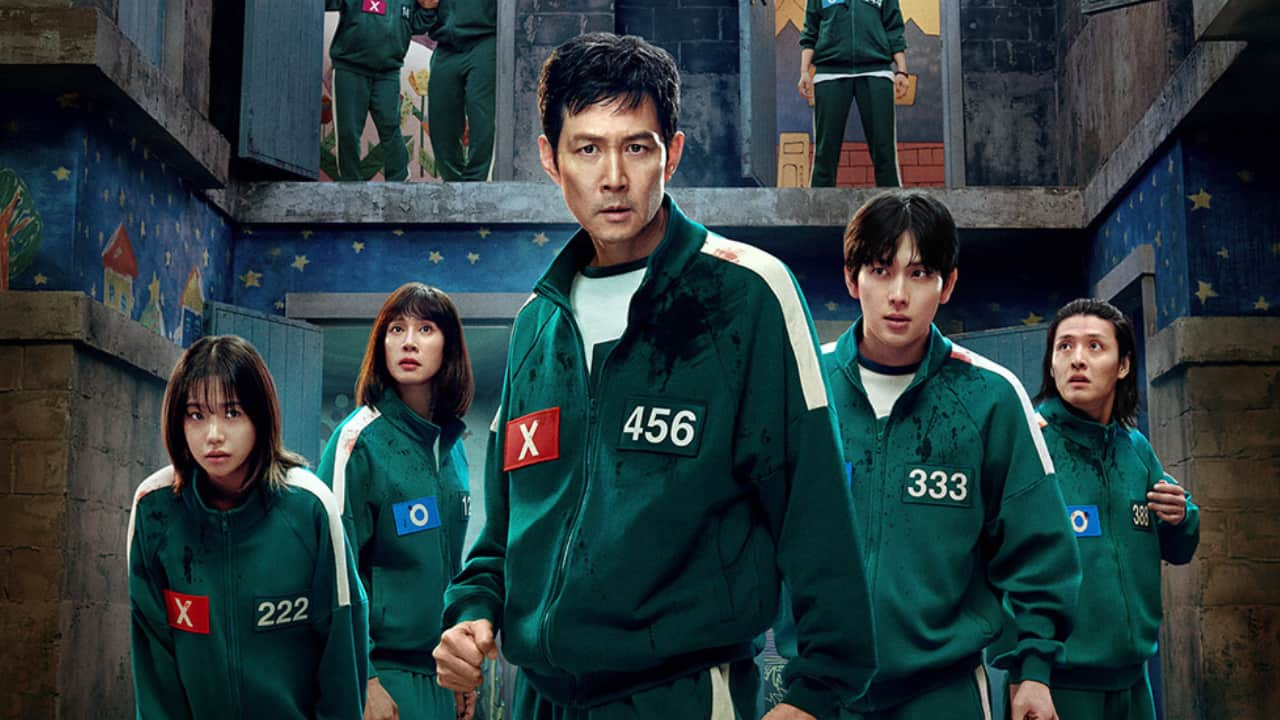Following the explosive success and intense psychological drama of the first two seasons, Squid Game: Season 3 dives even deeper into the brutal world of survival games, where desperation meets human nature’s darkest corners. This imagined third season expands the universe with higher stakes, new games, and deeper exploration of the mysterious organization behind the carnage.
Plot Summary
Season 3 picks up several months after the shocking finale of Season 2. The global awareness of the Squid Game phenomenon has caused chaos in the underworld — law enforcement is hunting for those responsible, while underground factions vie for control of the deadly spectacle.
Meanwhile, the Front Man’s identity remains a secret, and the mastermind behind the games — known only as “The Architect” — begins orchestrating a more ruthless season, inviting a mix of desperate new players and reluctant returnees.
This time, the game’s scope has expanded internationally. Players from multiple countries are kidnapped or coerced into competing, and the games themselves are more psychologically complex and physically perilous, blending classic childhood games with deadly new twists designed to break spirits and forge alliances — or betrayals.
Among the new players is Ji-hoon, a former detective haunted by his inability to save his sister from a previous game. He infiltrates the competition, driven by vengeance and the hope of dismantling the organization from within.
Alongside Ji-hoon, a group of diverse contestants emerges, each with tragic backstories: a fallen CEO fighting for redemption, a single mother desperate to save her child, and a hacker with secret ties to the game’s tech infrastructure.
As alliances form and fracture, the season explores the complex morality of survival — who can be trusted when every choice might mean life or death? Meanwhile, the show peels back layers of the organization itself, revealing internal power struggles, betrayals, and the chilling philosophy that fuels the games.

Themes and Character Development
Season 3 goes beyond mere survival drama to tackle larger societal questions:
-
The Value of Life vs. Survival Instinct: Characters are forced to confront not just physical threats but ethical dilemmas — can you kill to survive without losing your humanity?
-
Power and Corruption: The show reveals how power corrupts even the most idealistic characters, mirroring real-world dynamics of inequality and exploitation.
-
Identity and Redemption: Many contestants struggle with their pasts, seeking redemption or revenge. Ji-hoon’s quest blends justice with personal vendetta, creating a complex hero torn between morality and survival.
-
The Illusion of Choice: The season highlights how the games manipulate not just bodies but minds, forcing players into false choices that strip away freedom under the guise of competition.
New Games and Visual Style
The games in Season 3 are more inventive and cruel:
-
Shadow Maze: Players must navigate a labyrinth of mirrors and traps while avoiding detection by automated sentinels. The maze’s design plays with perception, symbolizing the players’ internal confusion.
-
Truth or Dare, Extreme Edition: A psychological game where players must reveal dark secrets or face deadly consequences, testing trust and manipulation.
-
Gravity Fall: A high-altitude free-fall game where contestants parachute into a moving arena, fighting for survival on unstable platforms.
Visually, the season embraces a darker, more surreal aesthetic. Neon lights clash with shadowy backdrops, and the once brightly colored uniforms are replaced by muted, worn textures reflecting the psychological and physical erosion of the players.
The use of close-ups on faces and hands during tense moments emphasizes the human cost behind the spectacle, reminding viewers that behind every number is a person fighting for their life.

Impact and Commentary
Squid Game: Season 3 would serve as both thrilling entertainment and a sharp social critique. It amplifies the franchise’s commentary on capitalism, inequality, and human desperation while evolving the characters and narrative complexity.
By introducing international players and expanding the organization’s backstory, the season adds global scale and emotional depth, showing how systemic oppression transcends borders.
The psychological intensity remains front and center, with tension rising not just from physical danger but from emotional and ethical conflicts.

Final Thoughts
This imagined Squid Game: Season 3 promises to deliver the adrenaline, suspense, and heartache fans expect — with richer characters and more challenging moral quandaries. It asks: in a world built on ruthless competition, can compassion survive? Or is humanity always the ultimate game?
-1751508693-q80.webp)
-1750818406-q80.webp)

-1751523431-q80.webp)